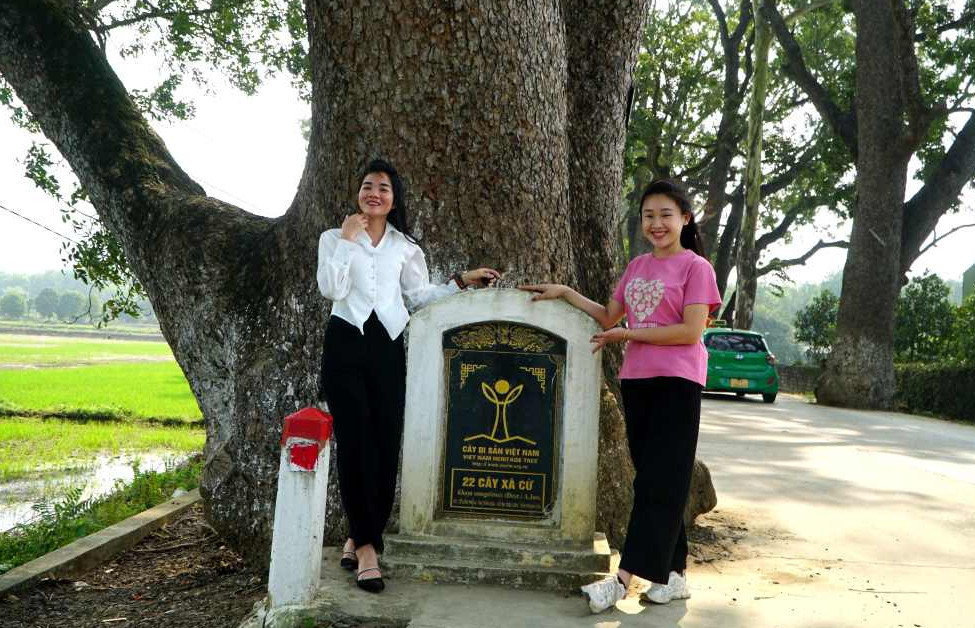
The banyan grove in Can Tho is not only a natural marvel but also a testament to the region’s cultural heritage and its role in Vietnam’s history. Its enduring growth amidst decades of change continues to inspire both locals and visitors.
Tran Tuyen
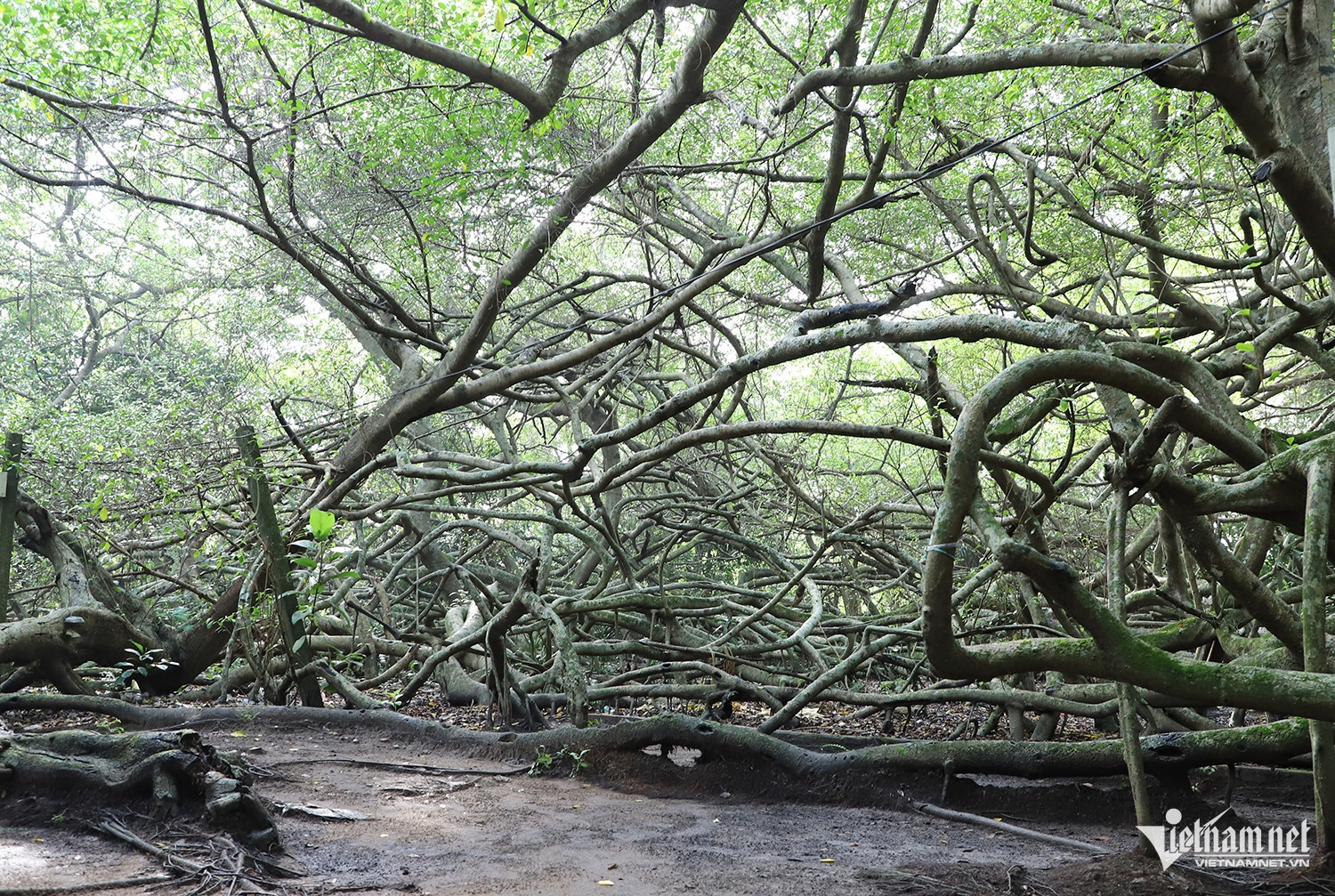
Located in the precinct of Co Mieu Ba Temple in Nhon Nghia Commune, Phong Dien District, Can Tho City, this extraordinary banyan grove rises about 15 meters tall. Known locally as gừa, the banyan tree (Ficus microcarpa) is a member of the fig family and typically thrives in tidal areas, riversides, and canals.

Over the centuries, the tree has expanded through its aerial roots, which anchor deep into the ground, creating a dense, interwoven network of branches.
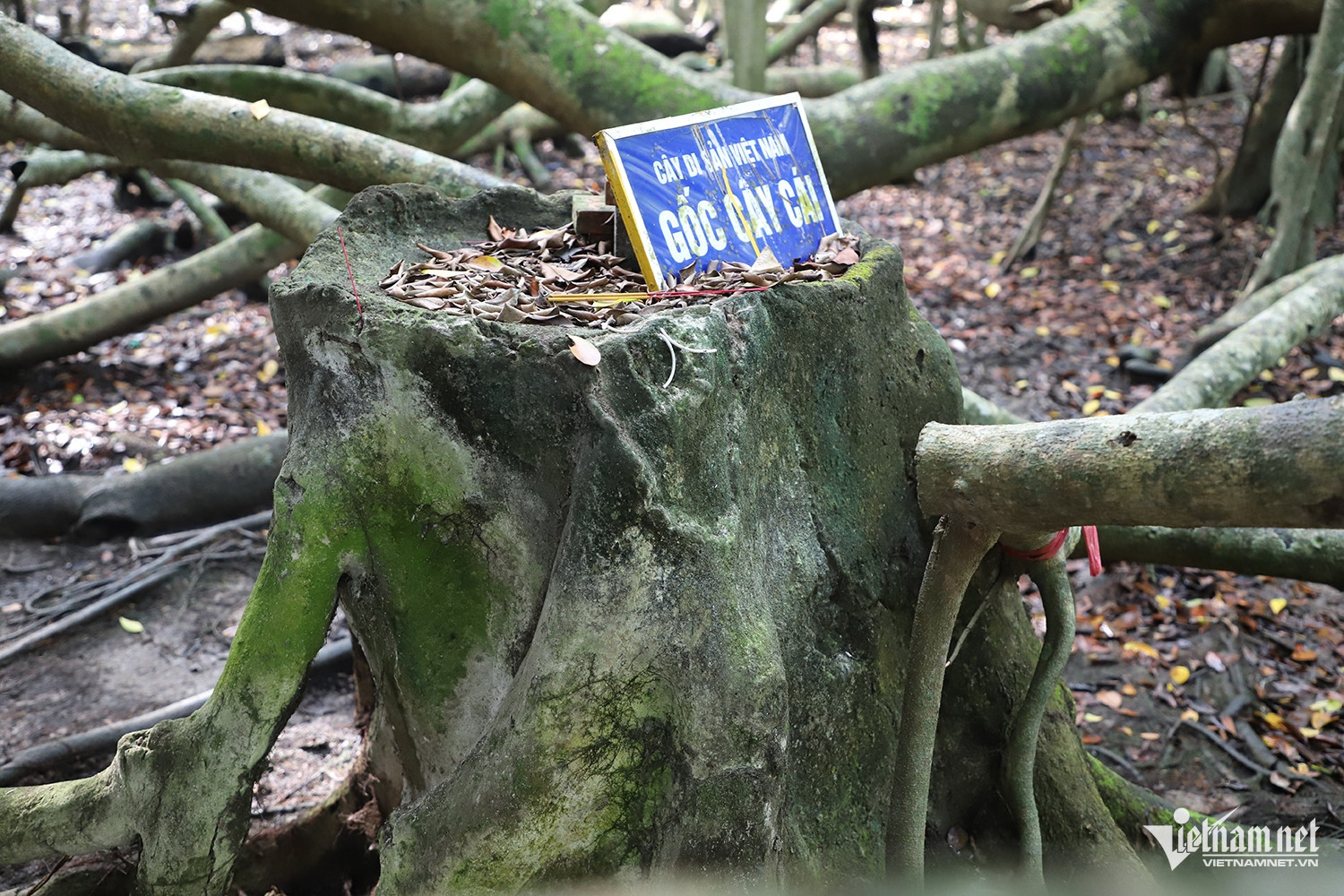
The original trunk no longer exists, but new shoots and vibrant greenery have emerged, symbolizing resilience and vitality.
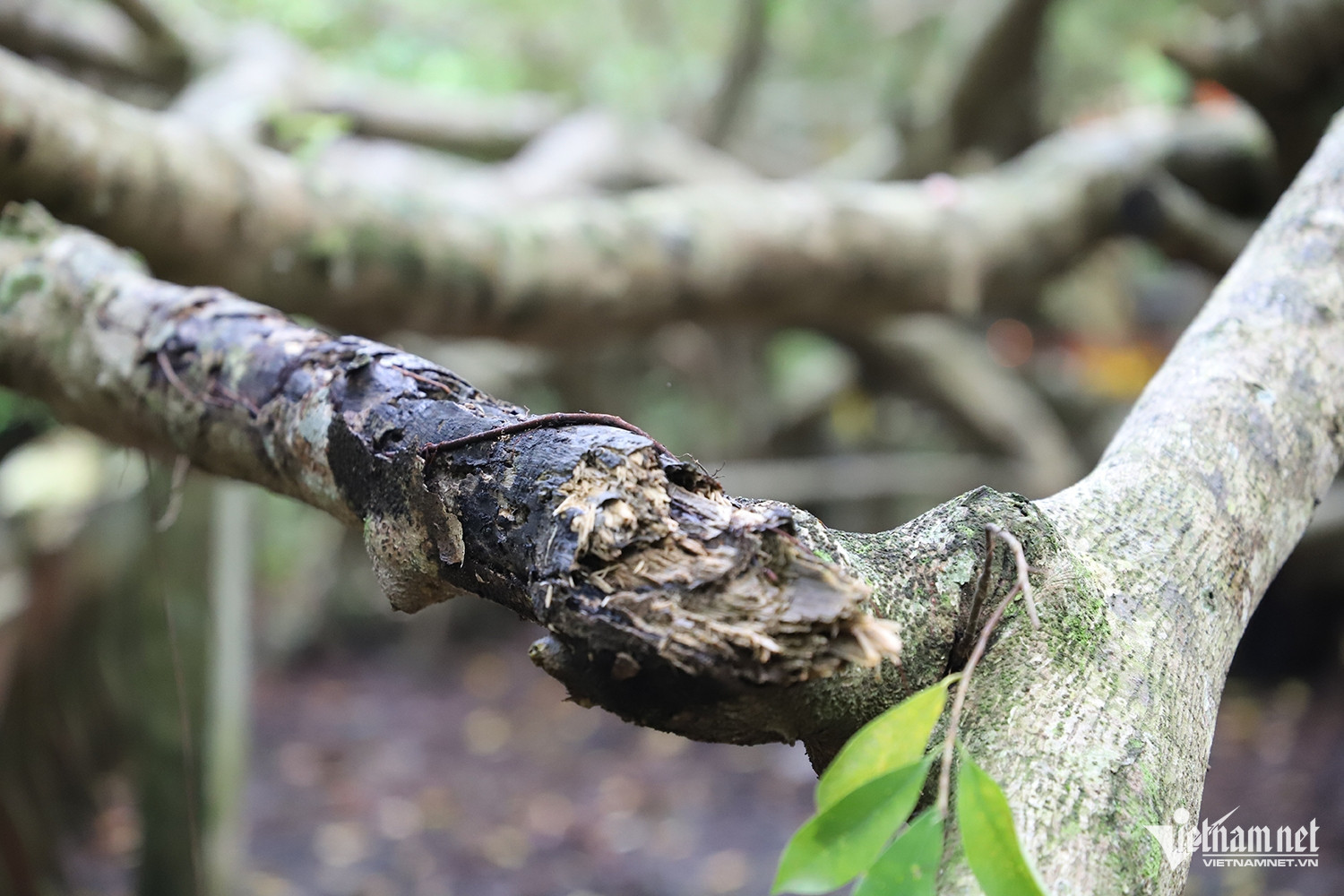
During the wars against French colonial and American imperial forces, the banyan grove served as a vital meeting place for the Southwest Region Committee and the Can Tho Provincial Party Committee. Between 1961 and 1965, it was used for training urban guerilla forces and hiding weapons.

"The exact origin of the banyan grove remains unknown, and no one has been able to count all its roots, but there must be over a thousand," said Mrs. Hien, a 70-year-old member of the temple's management committee. She recalled that the grove had already grown to its impressive size when she was a child.

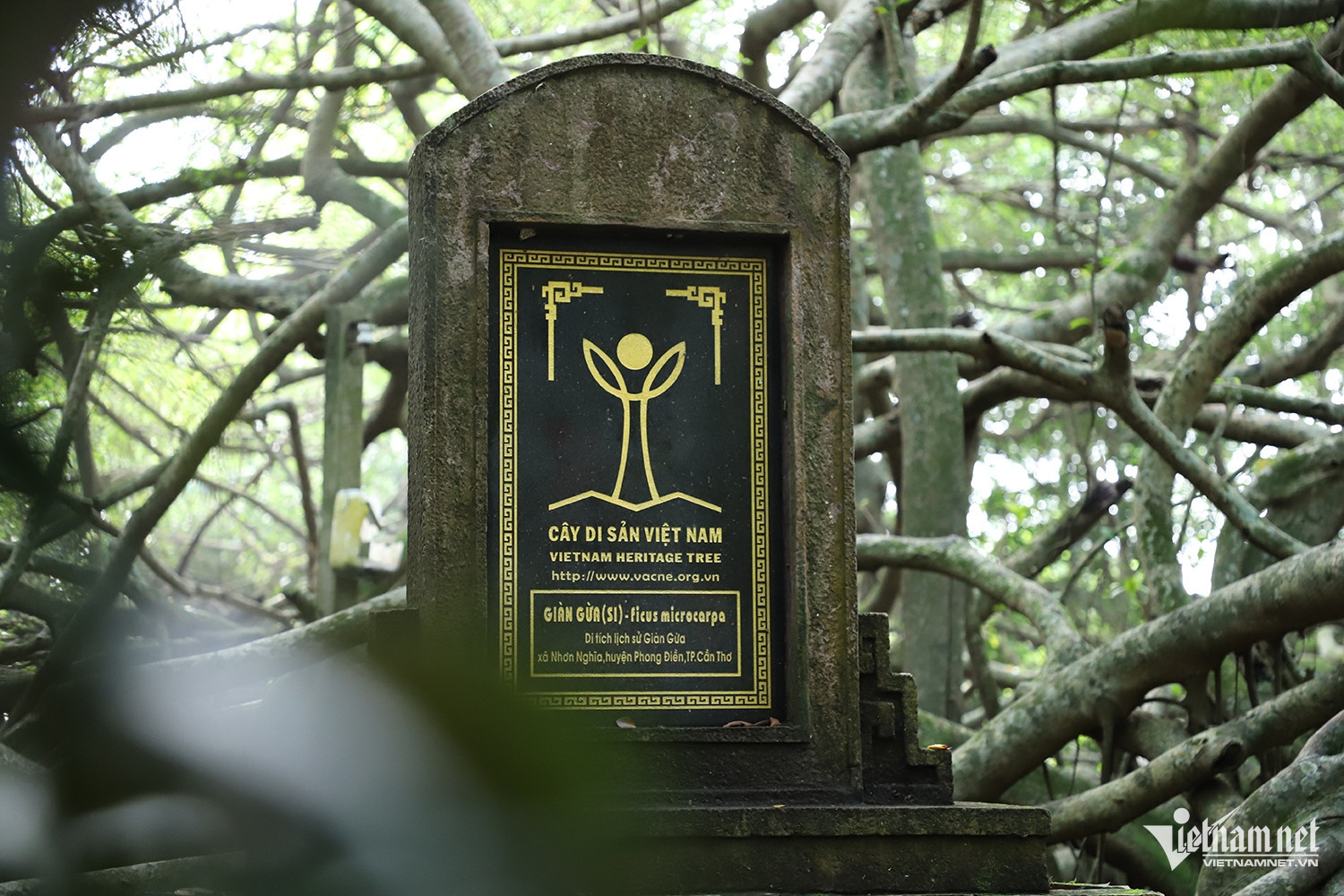
In 2013, the banyan grove was officially recognized as a Vietnamese Heritage Tree, marked by a commemorative plaque near its base.
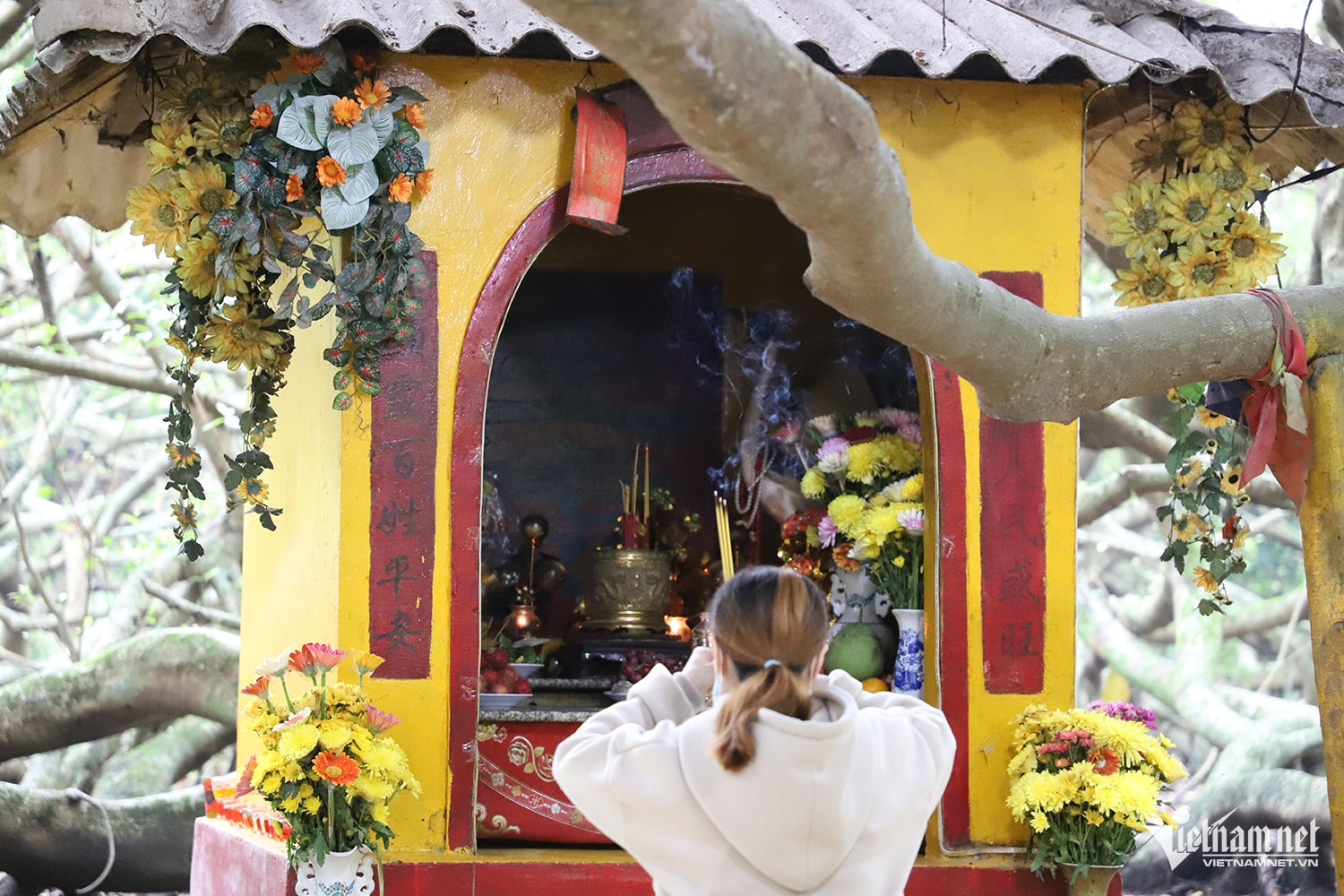
Adjacent to the grove stands Co Mieu Ba Temple, dedicated to Ba Thuong Dong Co Hy, a revered goddess regarded as a protector and benefactor of the local community. Each year on the 28th day of the second lunar month, the temple hosts a vibrant festival to honor the deity, seeking blessings for prosperity and favorable weather.

The banyan grove in Can Tho is not only a natural marvel but also a testament to the region’s cultural heritage and its role in Vietnam’s history. Its enduring growth amidst decades of change continues to inspire both locals and visitors.
Tran Tuyen